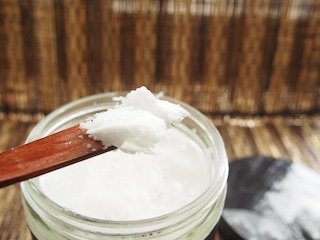Eczema, also known as atopic dermatitis, is a chronic skin condition characterised by inflammation, redness, and itching. It can affect people of all ages, causing discomfort and impacting daily life. While eczema doesn’t have a cure, there are various strategies for effective treatment and management to alleviate symptoms and improve the quality of life for those dealing with this skin condition. 📌
Understanding Eczema
Eczema is believed to result from a combination of genetic and environmental factors. Common triggers include allergens, irritants, stress, and climate conditions. It’s essential to work closely with a healthcare professional to identify specific triggers and develop a personalised treatment plan.
General Strategies for Eczema Management


- Moisturize Regularly:
- Keep the skin hydrated by using fragrance-free moisturizers. Apply immediately after bathing to lock in moisture.
- Gentle Cleansing:
- Use mild, fragrance-free cleansers and avoid hot water, as it can strip the skin of natural oils.
- Avoid Irritants:
- Identify and avoid potential irritants such as harsh soaps, detergents, and synthetic fabrics.
- Appropriate Clothing:
- Choose loose-fitting, breathable clothing made from natural fibers like cotton to reduce irritation.
- Manage Stress:
- Stress can exacerbate eczema symptoms. Practice stress-reduction techniques such as mindfulness, yoga, or deep breathing.
- Identify and Avoid Triggers:
- Work with a healthcare professional to identify and manage specific triggers that may worsen eczema.
Suggested: How to Minimise Enlarged Pores and Blackheads
Scalp Massager
Natural Hair Care for Shiny, Long, Wavy Hair
The Role of Diet in Managing Eczema
Nutrition can significantly impact eczema symptoms, particularly if food allergies are a known trigger. Although there isn’t a specific ‘eczema diet’, some individuals might experience symptom improvement by identifying and eliminating certain foods that may trigger or worsen their condition.
For instance, common food triggers can include dairy, eggs, nuts, seeds, wheat, and soya. Some sufferers also find that processed foods, which often contain chemical additives, can exacerbate symptoms. It’s crucial, however, to seek advice from a dietitian or healthcare provider before implementing significant dietary alterations. This ensures the nutritional balance is maintained, preventing potential deficiencies that could adversely affect overall health.
Home Treatment Options
1. Hydration is Key:
- Moisturize regularly with fragrance-free, hypoallergenic creams or ointments. Applying moisturizer immediately after a bath or shower helps lock in moisture.
2. Oatmeal Baths:
- Add colloidal oatmeal to your bathwater to soothe and hydrate the skin. Oatmeal has anti-inflammatory properties that can provide relief from itching.
3. Cold Compress:
- Apply a cold compress to the affected areas for 15-20 minutes to reduce inflammation and soothe itching.
4. Coconut Oil:


- Coconut oil is a natural moisturizer that can help alleviate dryness and reduce inflammation. Apply a thin layer to affected areas.
5. Aloe Vera Gel:
- Pure aloe vera gel can provide cooling relief and promote healing. Ensure it’s free from added fragrances or alcohol.
6. Avoid Triggers:
- Identify and avoid triggers that worsen your eczema, such as certain fabrics, harsh soaps, or specific foods.
7. Wet Wrap Therapy:
- Apply a damp, cool cloth or bandage to the affected areas after moisturizing. This helps lock in moisture and soothes the skin.
8. Turmeric Paste:
- Turmeric has anti-inflammatory properties. Create a paste with turmeric and water and apply it to affected areas. Be cautious, as it may stain clothing.
9. Probiotics:
- Probiotics may help balance the gut microbiome, potentially reducing eczema symptoms. Consider adding probiotic-rich foods or supplements to your diet.
Topical Treatments
- Corticosteroid Creams:
- Topical corticosteroids are commonly prescribed to reduce inflammation and itching. They come in varying strengths.
- Calcineurin Inhibitors:
- Non-steroidal creams like tacrolimus and pimecrolimus can be effective, especially in sensitive areas like the face.
- Topical Calcineurin Inhibitors:
- These medications help reduce inflammation and can be used on various parts of the body.
- Topical PDE4 Inhibitor:
- Crisaborole is a newer medication that targets inflammation and is approved for mild to moderate eczema.
Suggested: How to Get More Done
10 Habits of People Who Stay Slim
Phototherapy
UV Therapy: Controlled exposure to ultraviolet (UV) light under medical supervision can help manage eczema symptoms.
Novel Therapies
Biologic Medications: Biologics, such as dupilumab, target specific immune responses and are used for moderate to severe eczema.
Professional Guidance
Working closely with dermatologists or allergists is crucial for developing a tailored treatment plan. Regular check-ups can ensure that the chosen therapies are effective and safe.
While eczema can be a persistent condition, effective management and treatment strategies can significantly improve the quality of life for individuals dealing with this skin condition. By adopting a comprehensive approach that includes lifestyle adjustments, topical treatments and when necessary, novel therapies, individuals can gain better control over eczema and reduce its impact on daily life. It’s important to remember that what works for one person may not work for another, so finding the right combination of treatments often requires patience and collaboration with healthcare professionals.
